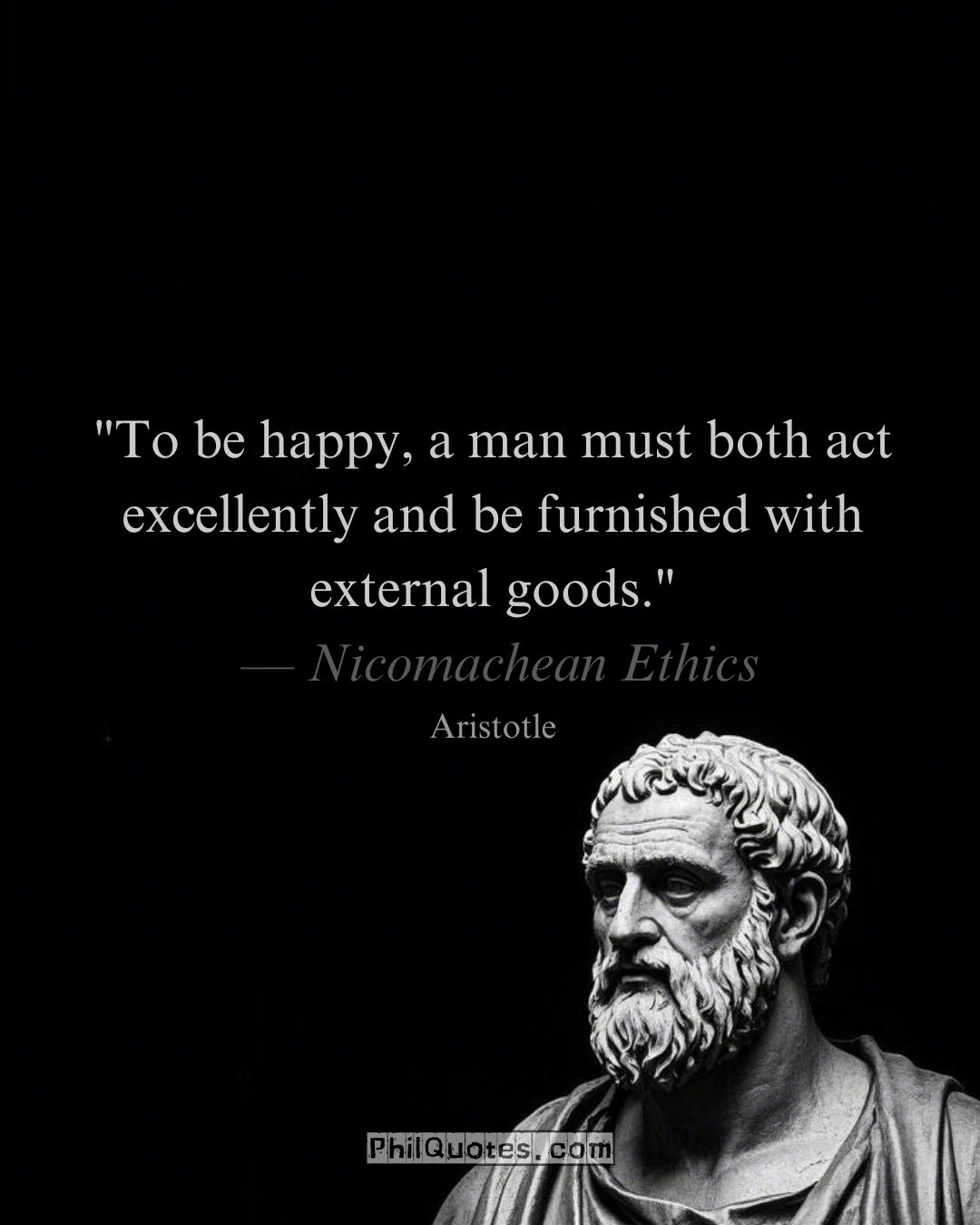
“To be happy, a man must both act excellently and be furnished with external goods.”
— Aristotle, Nicomachean Ethics, Book I, Chapter 8
Explanation:
Aristotle asserts that holistic happiness (eudaimonia) demands two interdependent pillars:
- Acting Excellently — Cultivating virtues (courage, justice, wisdom) through daily choices.
- External Goods — Access to resources (health, wealth, community).
Like a ship needing both wind (external goods) and a skilled captain (virtuous action), happiness thrives when inner excellence navigates outer conditions.
Real-World Connection:
① Social Entrepreneurship →
You launch a fair-trade business (excellent action) → secure impact investment (external capital) → lift 500 artisans from poverty (happiness synthesis).
② Cancer Survivor’s Journey →
A patient adopts mindfulness (virtuous resilience) → accesses cutting-edge treatment (medical resources) → mentors others post-recovery (legacy of holistic joy).
③ The Hidden Equation →
- Virtue’s Leverage: A teacher with modest salary (limited goods) → transforms students’ lives (amplified excellence).
- Resource Stewardship: An heiress donating wealth (external goods) → funds vaccine research (ethical action).
- Equilibrium Alert: Poverty stifles virtue’s growth; opulence risks moral decay — balance is art and science.